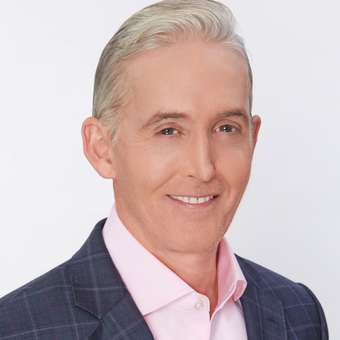Trey Gowdy: You can't make people help themselves
Host of 'The Trey Gowdy Podcast' and former federal prosecutor on drug courts and the challenges facing mental health services in prisons
Why can't prisons have mental health services? They can, and they do. And judges frequently order many mental health counseling or treatment while you're incarcerated. They can't make it available.
If it's not available, they don't control that. But if it is available, I've heard many, many, many judges order that you participate in that while you are incarcerated.
And, you know, jails – so, I'm all for it. Some do not. We'll have a whole other discussion about the quality of the service provided. If you were a top-flight psychiatrist, would you want to go work in a corrections facility? Is that the clientele that you would most want to have? I would not if that were me, but I'm not.
NYC BOARD OF CORRECTION VOTES TO END SOLITARY CONFINEMENT IN CITY'S JAIL SYSTEM
So the real question to me, I think, is not whether we have it or not. You could ask whether we have enough of it. The real issue that I have seen is you cannot make people attend sessions. I guess you can make them be present, but you can't make them participate. You can't make them take medication. You can't make people do what doctors and therapists suggest or tell them to do. That's true, inside a prison and outside of prison.
There has to be a willingness. There has to be a desire. Some people are broken and want to be put back together. Some can; some cannot. Some don't want to be put back together. Lots and lots of people want to beat addiction. We had drug court when I was practicing. We had every kind of help you could possibly want to offer to people to try to break this cycle of violence because, to me, more criminals mean more victims. So I wasn't just doing it to help the criminal. I was also doing it so there would be fewer victims.
PROGRESSIVES WANT TO STOP PAYING COPS, START PAYING CRIMINALS 'NOT TO KILL US': GOWDY
But you can't make people help themselves. You cannot make them do what even the most expert psychologists, the most expert drug addiction counselors want them to do. You can't make them do it. You can't make them take medicine. You can't make them analyze whatever it is the therapist or the psychologist or psychiatrist wants them to analyze.
And then you have the other challenge, which is knowing who can be helped, who cannot, and how much pain and how many additional victims are we as a society willing to accept in the process of figuring that out. So the question is internal. Mental health services – we have them. I'm not saying they're the best in the world because I don't know. I don't really know what a great mental health system would look like.
CLICK HERE TO GET THE FOX NEWS APP
I've got plenty of progressive friends. I've got plenty of friends who have very, very different ideas on the criminal justice system, and I get that a lot – that this person should get treatment and not incarceration. Okay.
I mean, we offer drug court. So we've got somebody with a nonviolent offense. We're offering you drug court, which the sole purpose of that is to help you beat your addiction. And you would be stunned at the number who rejected that and just wanted straight probation because straight probation was easier. It's not better for them. It's not going to get them off of drugs. It's just easier for them to navigate straight probation or serve a short prison sentence than it was to go through drug court.
Because drug court is hard – you're confronting your addiction. You're confronting whatever led to your addiction. I mean, it's tough. In the long run, if it's successful, it is far better for you. But how do you make someone do what you have to do to improve your life?
CLICK BELOW TO LISTEN TO THE FULL EPISODE OF "THE TREY GOWDY PODCAST":
Episodes of "The Trey Gowdy Podcast" are available now and can be downloaded at foxnewspodcasts.com.
This article is adapted from Trey Gowdy's Q & A on the January 27, 2022 edition of "The Trey Gowdy Podcast."


